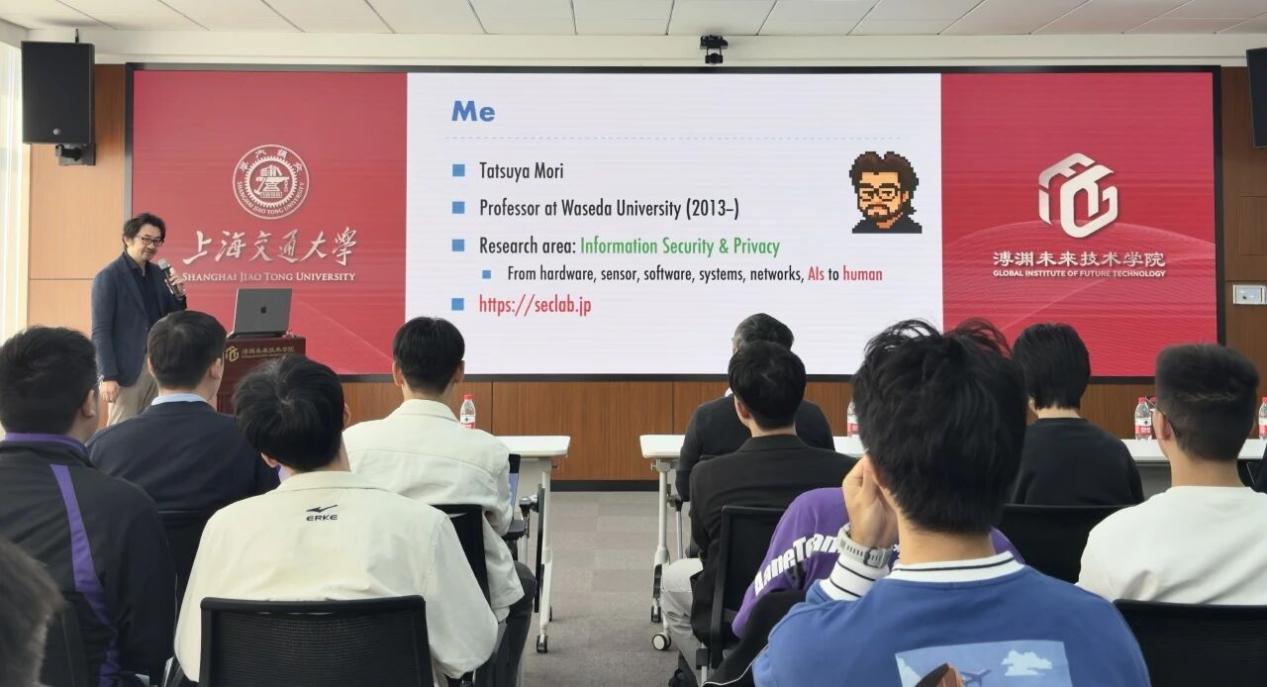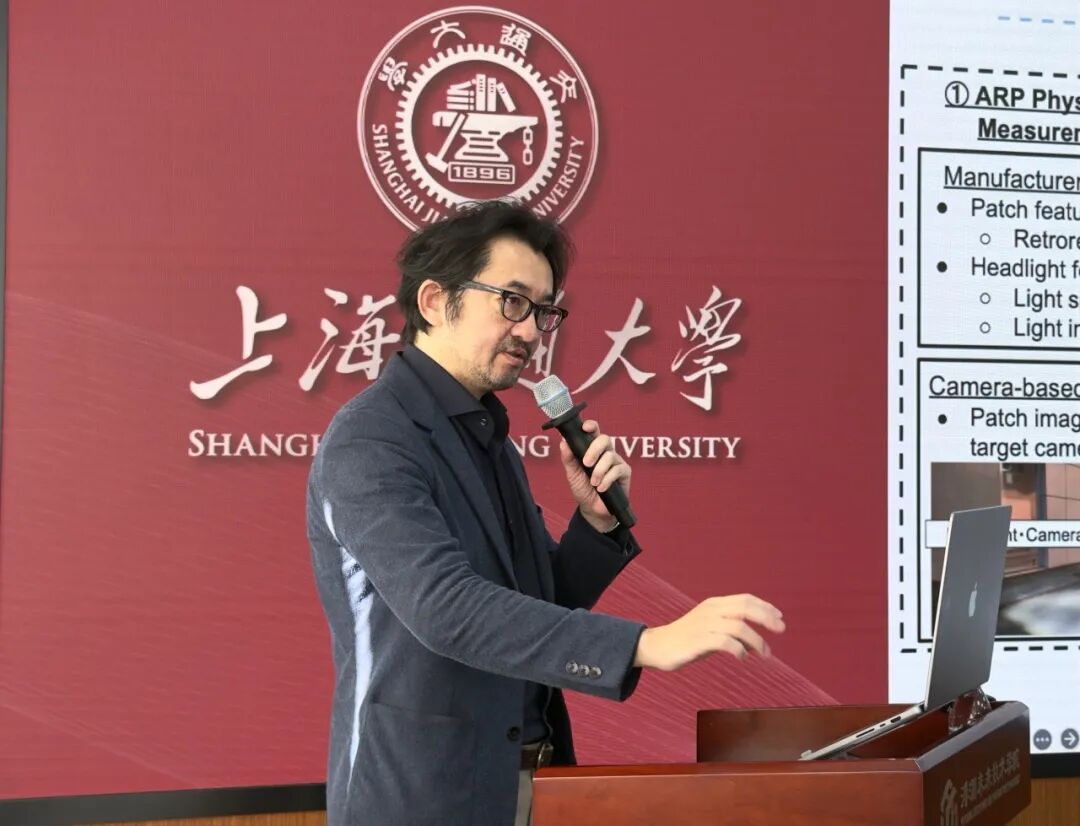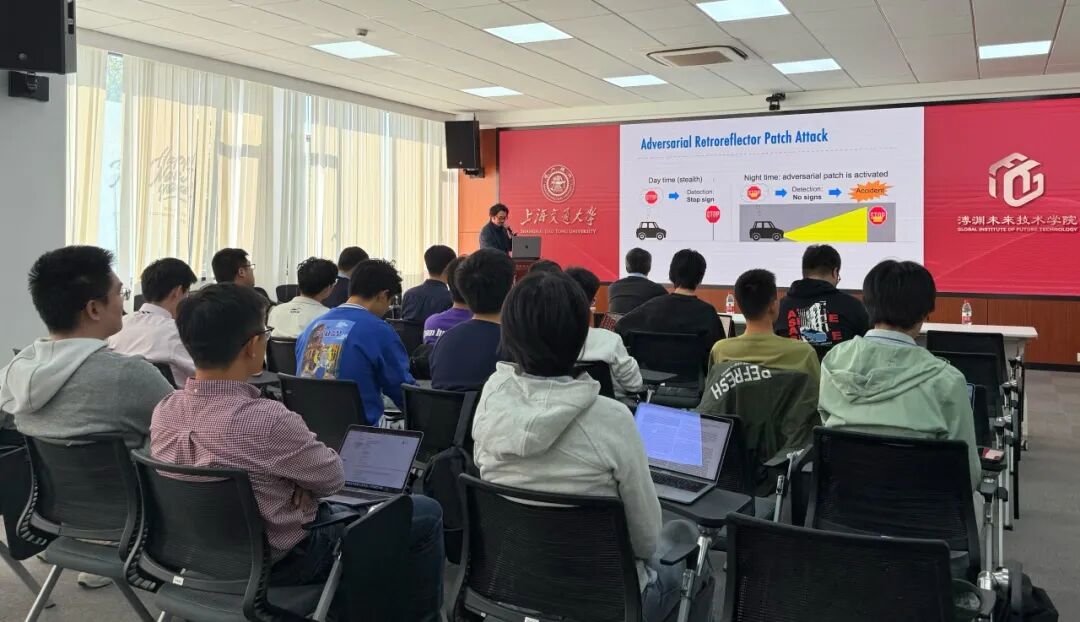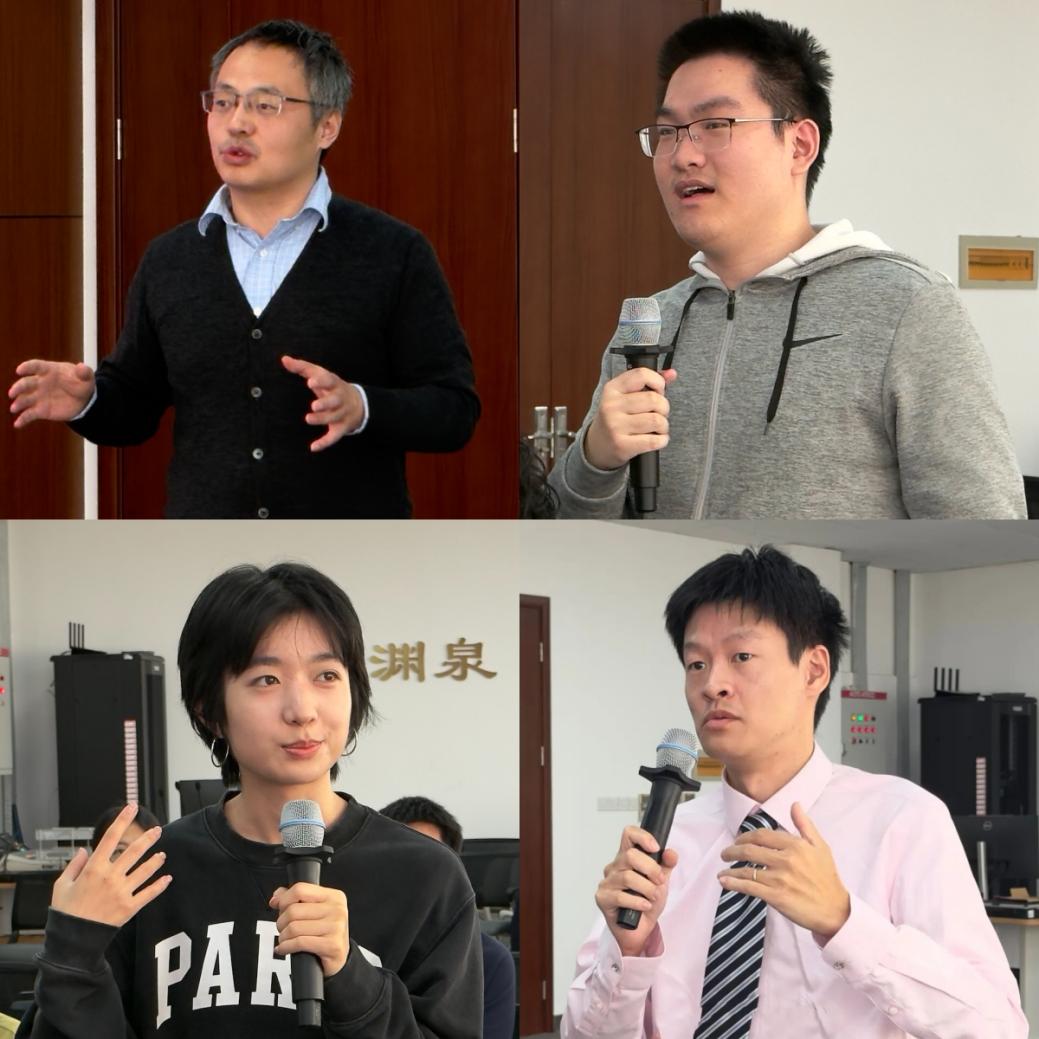Professor Tatsuya Mori from Waseda University Delivers an Academic Lecture at GIFT: Deceived Algorithms: Security Blind Spots in Autonomous Driving
On October 24, 2025, Professor Tatsuya Mori from Waseda University was invited to deliver an insightful lecture titled "Deceived Algorithms: Security Blind Spots in Autonomous Driving" at GIFT. The lecture was held by Innovation Center of Intelligent Connected Electric Vehicles. Hua Bao, Vice Dean of GIFT, attended the event.


With the development of autonomous driving technology, artificial intelligence (AI) is playing an increasingly crucial role in environmental perception, path planning, and decision-making systems. However, Professor Mori pointed out that though AI enhances automation, its heavy reliance on data and algorithms introduces unprecedented security challenges. In real-world environments, autonomous driving systems dependent on deep learning models and sensors are vulnerable to malicious attacks, potentially leading to system failures or even traffic accidents.

In his lecture, Professor Mori first elaborated on various security threats at the perception level, such as "adversarial example attacks" and "data poisoning attacks", explaining how they may jeopardize autonomous driving systems with research cases. He noted that such attacks are not merely theoretical, but also pose tangible threats in practical applications.
Professor Mori further explored security threats at the physical level, including sensor spoofing attacks and reflection attacks. He stressed the necessity for "end-to-end security evaluation" in the development of autonomous driving systems to ensure the entire system can defend against potential attacks.

During the Q&A session, faculty and students engaged in a lively discussion on effective defense strategies and improving robustness of systems.
In conclusion, Professor Mori shared insights into the future prospects of autonomous driving technology. He also called for strengthened regulation and cross-disciplinary collaboration to ensure emerging technologies can be applied in a safer and more controllable way.




